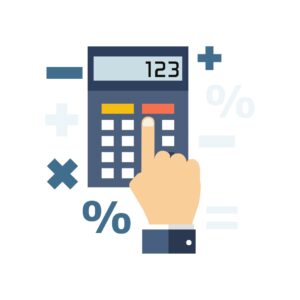
Feeling the strain from the monthly payments on that shiny car you couldn’t resist a couple of years ago? You’re not alone! Many of us jump at the chance to buy a car, confident that our wallets can handle the loan, only to find ourselves struggling financially as circumstances change. But fear not, there’s a solution in sight with car refinancing offering a way out.
Key Takeaways
- Lower Interest Rates: Refinancing can secure a lower interest rate, reducing monthly payments and making the loan more manageable.
- Loan Term Adjustments: Through refinancing, you can either shorten or extend the loan term, which affects monthly payments and the total interest paid.
- Cash-Out Option: Some lenders offer cash-out refinancing, allowing you to borrow more than the existing loan and receive the difference in cash. However, this increases the overall loan amount.
- Credit Score Impact: The refinancing process can temporarily lower your credit score due to a hard credit inquiry. Still, managing the new loan responsibly can positively affect your score over time.
What is Car Refinancing?
Car refinancing essentially involves swapping your current car loan for a new one, either with the same lender or a different one. The new loan pays off your existing vehicle loan, introducing you to new repayment terms under a fresh agreement.
However, before proceeding, it’s essential to ensure that both you and your car meet the eligibility criteria. Keep in mind that requirements may vary among lenders, so consider these points as general guidelines.
Key Considerations for Car Refinancing in South Africa
- Citizenship: You must be a South African citizen with an impeccable credit history.
- Driver’s License: A valid South African driver’s license is mandatory.
- Vehicle Condition: Your car should not be a rebuild or a vehicle that has been stolen and then recovered.
- Minimum Value: The car must be valued at R45,000 or higher.
- Age of Vehicle: Your car should not be manufactured before 2001. However, note that vehicles around a decade old might not always meet the criteria.
- Mileage: Pay attention to the odometer reading; excessive mileage could disqualify your car.
- Condition: The condition of your car must align with its book value and be durable enough to withstand the duration of the new finance agreement.
If you’re considering refinancing your car, using a reliable Car Loan Calculator can streamline your decision-making process. This tool helps you quickly assess potential savings and understand your new repayment terms, allowing you to make an informed choice with ease.
Car Refinancing Process

Step 1: Crunch the Numbers
Begin by assessing the costs involved in refinancing compared to the potential savings. This requires some groundwork to fully understand the financial implications.
Things to consider:
- Check for any pre-payment penalties on your current loan.
- Evaluate the costs associated with settling your car loan earlier than planned.
- Take into account the expenses related to re-registering the vehicle and transferring the title post-refinance.

Step 2: Eligibility Check
Criteria vary among banks, so while our general guidelines provide a starting point, it’s essential to explore your options. Shopping around helps you find a bank where you meet the refinancing criteria and secure the best interest rate and repayment terms deal.
A tip: Initiate a ‘soft inquiry’ with several banks to get pre-qualified. A ‘hard inquiry’ for refinancing may slightly affect your credit score as it is noted by credit bureaus.

Step 3: Document Assembly
Preparation is crucial. Gather the necessary paperwork in advance to streamline the refinancing process, regardless of the bank you choose.
Required documents include:
- A certified copy of your ID or another form of identity verification.
- Proof of income, typically a bank statement from the last three months.
- A confirmation of cover letter as evidence of insurance.
- Details of your current loan (outstanding balance, interest rate, loan period).
- Vehicle information, such as the VIN and registration number.

Step 4: Application Time
Once you’ve decided on refinancing, found a suitable loan, and are satisfied with the interest rates and terms, it’s time to apply.
Complete the loan application, submit the necessary documents, and the bank will facilitate the transition from your old to your new loan. However, ensure that your original loan has been fully settled to ensure everything is in order.
Refinancing can be a game-changer, but if you’re considering other ways to own a car, it’s worth exploring how rent-to-own cars work as a flexible option for car ownership.
Eligibility Criteria for Vehicle Refinancing in South Africa
To qualify for vehicle refinancing in South Africa, applicants must meet specific criteria. While these requirements may vary among different financial institutions, the following conditions generally apply:
- South African Citizenship: Applicants must be South African citizens.
- Vehicle Age: The car in question should not be older than the 2001 model year.
- Minimum Car Value: The vehicle’s value should be at least R45,000.
- Valid Driver’s Licence: The vehicle owner must possess a valid South African driver’s licence.
- Credit History: A clear credit record is essential for the application to proceed.
- Income Threshold: Applicants need to earn a net salary of no less than R6,500 per month.
- Vehicle Condition: The car must not have undergone significant modifications and should not be a vehicle that has been stolen and recovered.
Meeting these criteria is crucial for a successful refinancing application.
If you’re concerned that your financial history might hinder your ability to refinance your car, it’s important to know that there are tailored options available. For those with less than perfect credit scores, understanding how to get car finance with a bad credit record can be the key to unlocking potential financing opportunities.
How to Apply for a Loan with Arcadia Finance
Applying for a loan at Arcadia Finance is straightforward and accessible. Start your application by visiting our website, where our dedicated and experienced team is available to assist you with any inquiries you might have throughout the process. We will require some basic information from you, including details about your income and expenses, as well as your desired loan amount and preferred repayment term. After submitting your application, our team will promptly review the details and respond with a decision as soon as possible.
Why do people consider refinancing their cars?
Refinancing your car offers several enticing benefits that could significantly alleviate your financial burden, both presently and in the future. By choosing to refinance, you may secure a lower interest rate, subsequently reducing your monthly loan payments. This adjustment not only alleviates your monthly financial strain but also potentially hastens the repayment of your loan balance.
Additionally, refinancing can prove to be a strategic maneuver if you find yourself in a situation where the outstanding amount on your current loan surpasses the market value of your car.
However, it’s essential to be mindful of certain drawbacks associated with refinancing. One of the primary downsides is the potential for additional costs linked to securing a new loan, such as administration fees and the expense of a vehicle inspection.
Although not always the case, refinancing might result in an extension of your repayment period. Being cognizant of this possibility is crucial when contemplating refinancing as an option.
Illustrating the Value of Car Refinancing:
Consider you’ve purchased a 2008 sports car for R200,000, intending to pay it off over 72 months. Using a finance calculator, your monthly repayments at a 16% interest rate would be R4,650. However, if you refinance with a new loan at a more favorable 12% interest rate, your monthly cost could drop to R2,950. That’s a significant monthly saving of R1,700, highlighting the substantial financial relief car refinancing can provide.
Need funds for more than just a resale? Check out Car Repair Loans to cover urgent fixes before you refinance, so your vehicle’s in tip-top shape when you submit your valuation.
Pros and Cons of Car Refinancing
Advantages
- Reduced monthly payments: Refinancing can lead to smaller monthly expenses, providing relief to those struggling with their finances or looking to free up extra cash each month.
- Diminished interest rates: Securing a lower interest rate through refinancing can result in significant savings, reducing the total interest paid over the life of the loan and consequently lowering monthly payments.
- Enhanced loan conditions: Refinancing offers an opportunity to adjust your loan’s specifics, such as its duration or the type (fixed or variable) of the loan.
- Improved cash flow: Refinancing may increase your liquid funds if the current value of your vehicle exceeds the amount you owe.
Disadvantages
- Incidental costs: The refinancing process may involve various charges, such as application fees or penalties for early repayment, which could diminish the savings refinancing offers.
- Prolonged loan duration: Extending your loan’s tenure through refinancing might result in more interest paid over time, even with a reduced rate.
- Risk of negative equity: Refinancing may not be advantageous if your vehicle’s debt exceeds its value.
- Credit score implications: Applying for a new loan can temporarily lower your credit score. Accepting a loan with a higher rate could further negatively impact your credit standing over time.
Optimal Timing for Car Refinancing
Deciding to refinance your vehicle is a significant step that requires solid reasons. Here’s when considering a refinance might work in your favor:
When Interest Rates Have Fallen
Interest rates fluctuate regularly, offering opportunities for savings if rates have dropped since you secured your original car loan. A decrease of just 2 to 3 percent could result in significant savings over the loan’s lifespan.
With South Africa’s interest rates currently at a historic low, those who obtained car loans in 2018, when rates were substantially higher, could benefit from refinancing under the current economic conditions.
When Your Financial Situation Has Improved
Lenders assess various factors, including your income, monthly expenses, and credit score, to determine your loan’s monthly payments. An increase in income and a decrease in debt can improve your credit score, enhancing your financial position. With an enhanced financial profile, you’re in a better position to secure a loan with more favorable terms.
If You Didn’t Secure the Best Deal Initially
There’s a possibility you may not have obtained the best deal on your loan initially, possibly due to time constraints or insufficient information. Taking the time now to explore other financial institutions could reveal options with lower interest rates or more flexible credit requirements, making refinancing a wise decision.
About Arcadia Finance
Obtain your loan smoothly with Arcadia Finance. There are no application fees, and you can select from 19 trusted lenders, each meeting the requirements of South Africa’s National Credit Regulator.
Scenarios Where Refinancing Your Car Isn’t Advisable
Refinancing your vehicle might appear to be a savvy move to trim your monthly expenses, but there are instances when it might not serve your financial interests optimally. Here are times when you should reconsider before refinancing your car:
When Most of Your Car Loan Is Paid Off
If you’re approaching the end of your car loan term, it’s generally wiser to settle the debt outright. As the remaining amount dwindles, the interest you’ll pay decreases, diminishing the potential savings from refinancing as you near the completion of your repayments.
If Your Car Has High Mileage
Vehicles depreciate over time, and high-mileage cars depreciate even more rapidly. Many lenders impose age and mileage restrictions for refinancing because the risk amplifies as the vehicle ages. Typically, refinancing is most feasible in the early stages of car ownership.
When Refinancing Costs Outweigh the Savings
Refinancing entails various fees, including bank initiation charges and refinancing facilitation fees. It’s imperative to compute these expenses to ensure they don’t offset the savings from a lower interest rate or reduced monthly payments.
Planning to Apply for More Credit Soon
Applying for any loan impacts your credit score, a crucial factor to consider if you intend to undertake additional significant financial commitments shortly, such as applying for a mortgage. Frequent credit applications can lower your score, potentially impacting your ability to secure favorable terms in the future.
Conclusion
Refinancing your vehicle can indeed result in financial savings, and if your circumstances align well with the criteria, it’s certainly worth contemplating. However, it’s vital to be mindful of the potential effects on your credit score that could result from reapplying for car finance. Additionally, be ready for potential additional finance charges – these are significant questions to address with any potential lender. Overall, the advantages of refinancing typically surpass the disadvantages.
Frequently Asked Questions
Car refinancing involves replacing your current car loan with a new one, typically with different terms. This could involve obtaining a lower interest rate, adjusting the loan duration, or changing the monthly repayment amount. The primary objective is often to reduce monthly payments or save on the total interest paid over the loan’s lifespan.
The optimal time to refinance your car is when interest rates have decreased since you acquired your original loan, your credit score has improved, or if adjusting the loan’s terms could better align with your current financial circumstances. Refinancing may also be advantageous if you initially secured a high interest rate due to less favorable credit conditions.
Indeed, there are potential drawbacks to consider. Refinancing could incur additional fees, such as processing or early repayment charges, which might counterbalance the savings derived from a lower interest rate. Elongating the loan term to attain lower monthly payments could lead to paying more in total interest over the duration of the loan.
Requirements can vary among lenders but typically include having a good credit score, a history of timely payments on your current loan, and a vehicle that hasn’t depreciated below a certain value. The car usually needs to be newer than a specific model year and have a minimum value, often around R45,000 or more.
Applying for car refinancing entails a hard inquiry on your credit report, which can temporarily lower your credit score. However, if refinancing leads to lower monthly payments that are more manageable, it could positively impact your credit score in the long term by facilitating easier payment maintenance.
Fast, uncomplicated, and trustworthy loan comparisons
At Arcadia Finance, you can compare loan offers from multiple lenders with no obligation and free of charge. Get a clear overview of your options and choose the best deal for you.
Fill out our form today to easily compare interest rates from 19 banks and find the right loan for you.


